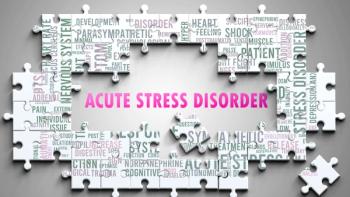
Starting CBT Therapies Within a Year of PTSD Diagnosis Linked to Fewer Suicides Among Veterans
A large study analyzed suicide deaths among veterans with newly diagnosed post-traumatic stress disorder (PTSD) who did or did not receive a course of evidence-based therapy.
Lifetime prevalence of PTSD is about one-third higher among United States military veterans than the general population of the same age and sex. The suicide rate is about two-thirds higher. PTSD is a major risk factor for suicide.
Yet two short-term, cognitive behavioral therapies that have been shown to reduce PTSD symptoms and used throughout the VA system for 18 years were never previously examined in large studies for their ability to prevent suicides.
A
Senior author
Cognitive Processing Therapy (CPT) and Prolonged Exposure (PE) therapy are cognitive behavioral therapies tailored for PTSD. They work by teaching patients to challenge unhelpful thought patterns and learned associations, which reduces the emotional impact of trauma. The standard course of treatment is eight sessions, although not necessarily within a specific time frame.
The researchers compared veterans who had initiated either treatment at the VA within 365 days of their diagnosis and completed the standard course within 180 days against those who had not. They also considered veterans who continued CPT or PE beyond eight sessions as well as those who participated in different kinds of psychotherapy.
Completion of either type of cognitive behavioral therapy was associated with a 23% reduction in suicide risk. Extending the course of treatment did not provide further benefit.
“Many individuals undergoing CPT or PE experience a rapid reduction in symptoms within the first few sessions,” Sripada said in a VA
Two-thirds of the cohort received psychotherapy. But,the authors pointed out, only 8.7% got CPT or PE. The study was unable to differentiate between veterans in VA care who were offered the therapies and declined vs. those who were not offered either treatment.
“Study findings support recommendations of CPT/PE as treatment for veterans with new diagnoses of PTSD,” the authors concluded.
Newsletter
Get the latest industry news, event updates, and more from Managed healthcare Executive.























